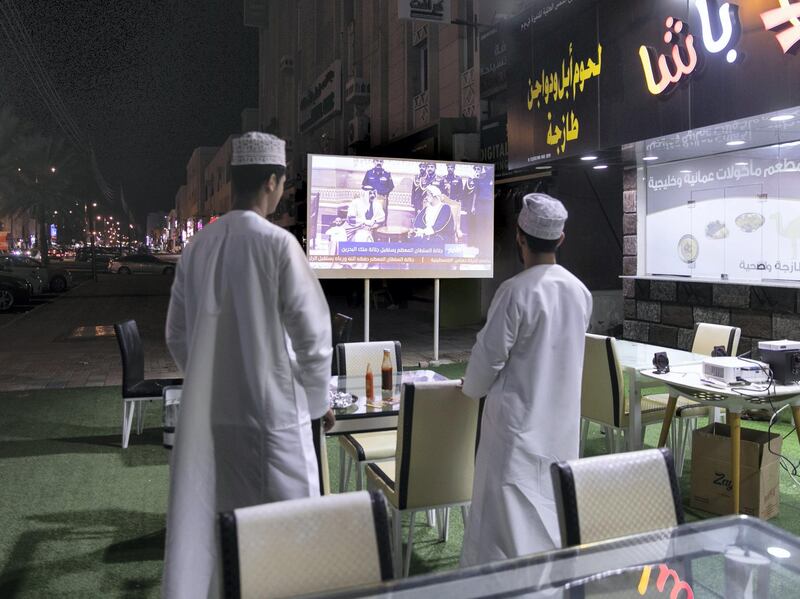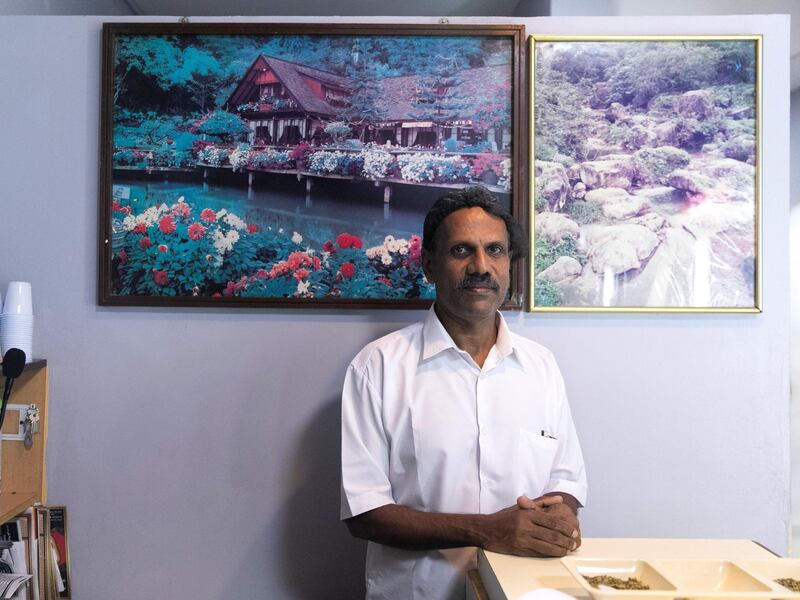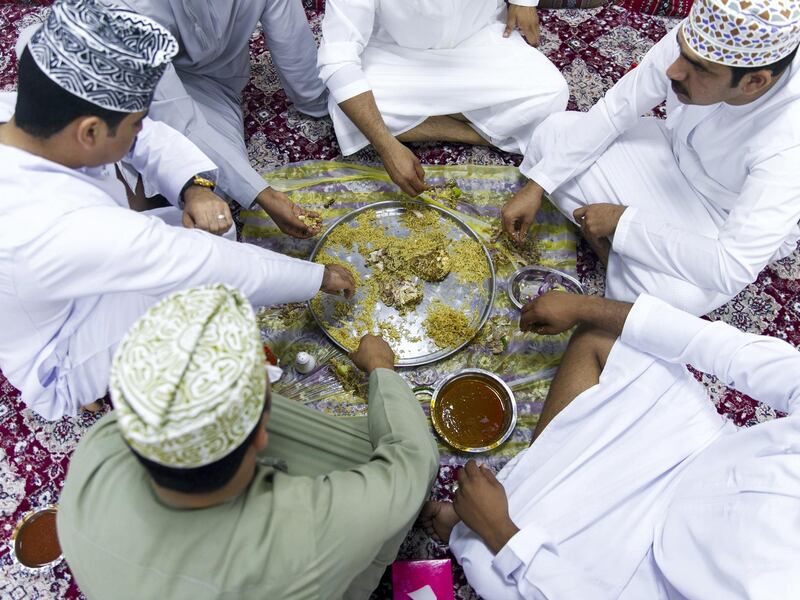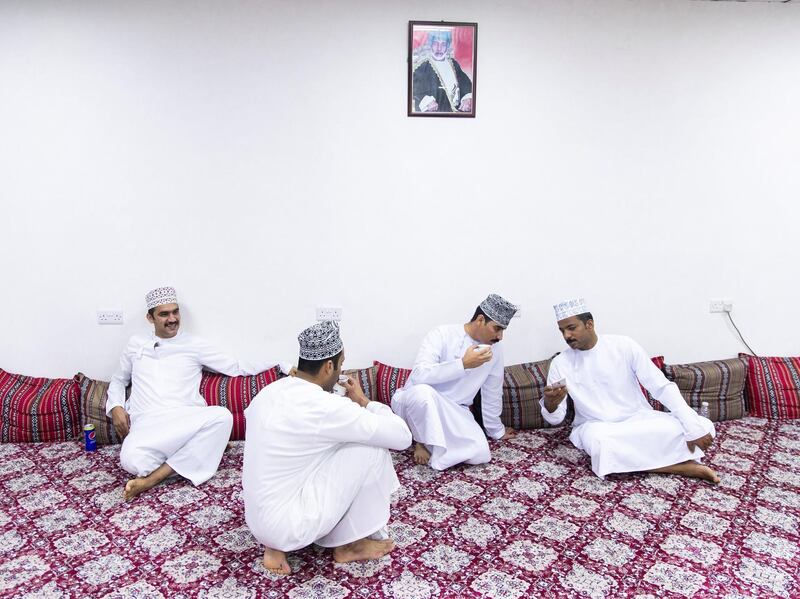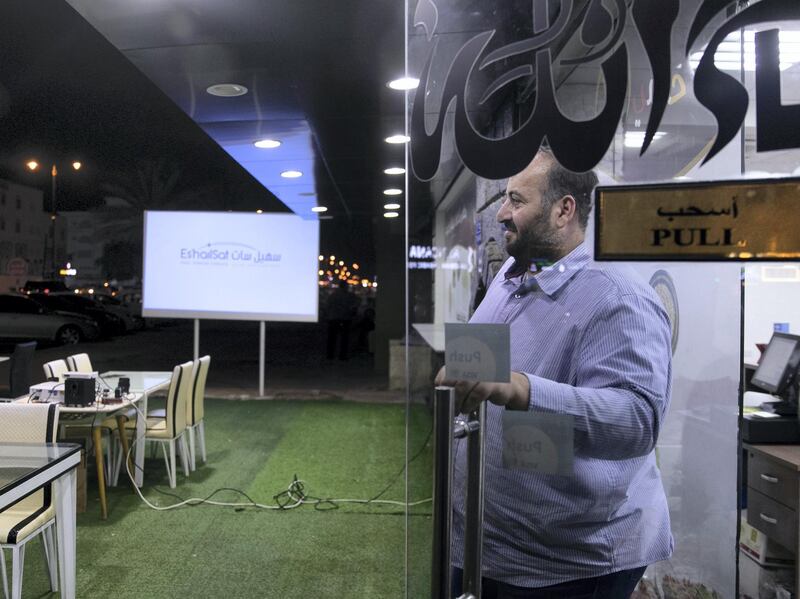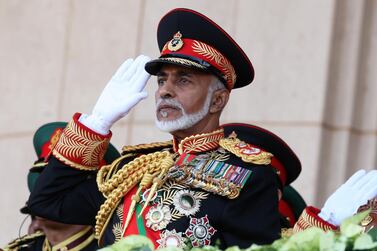The death of Sultan Qaboos bin Said continues to reverberate across Oman, as citizens and expatriates deal with the loss.
The main road in the capital Muscat was closed on Sunday as world leaders arrived at Al Alam Palace in Muttrah to offer condolences on the death of the Sultan, who died on Friday, aged 79.
He had ruled Oman for 49 years.
As palace doors opened to the world, smaller government offices around the country hosted local tribesmen while the country's three days of mourning continued.
After Saturday’s funeral and a sudden halt to all non-essential services, business slowly resumed in Muscat on Sunday evening.
The coastal souq in Seeb had bumper-to-bumper traffic. Young men selling grilled squid and chicken skewers had returned to beach roads.
Restaurants around the university opened to serve students who could not return home for the three-day mourning period.
“Yesterday, even the supermarkets were closed but people need milk, they need groceries. So today traders said we need to reopen,” said Taher Al Moqdad, the Syrian owner of a mandi restaurant near Sultan Qaboos University.
“Today, half the market’s shops are closed. Yesterday it was 90 per cent.”
Mr Al Moqdad was one of a handful to open the doors of his restaurant in the student district of Al Khoud on Sunday evening.
He has lived in the Gulf for almost 20 years, first in the Emirates and then Saudi Arabia. But it was after his last move, to Oman, that he found himself settled.
“I ask myself, why didn’t I move to Oman sooner?”
Men gathered around the big screen outside Mr Al Moqdad’s restaurant late on Sunday to watch footage from the royal palace where the newly appointed Sultan Haitham bin Tariq welcomed state leaders who had flown to Oman to pay their respects.
Muscat resident Omar Ali, 29, sat outside enjoying tea with a friend at a nearby cafe. A mention of Sultan Qaboos brought quick solemnity.
The day before, he was among the thousands who attended funeral prayers at Sultan Qaboos Grand Mosque in central Muscat.
Tears ran down his face. “It was sudden news,” he said. “Everyone was in tears.”
Electronic billboards with black and white images of Sultan Qaboos and prayers in his honour flashed above the motorway.
“When the Sultan died, it was not just Omanis who were sad,” said Chandram Marulla Prambath, a restaurant manager from Kerala who moved to Dhofar governorate in about 1990.
“All people in Oman felt the same.”
